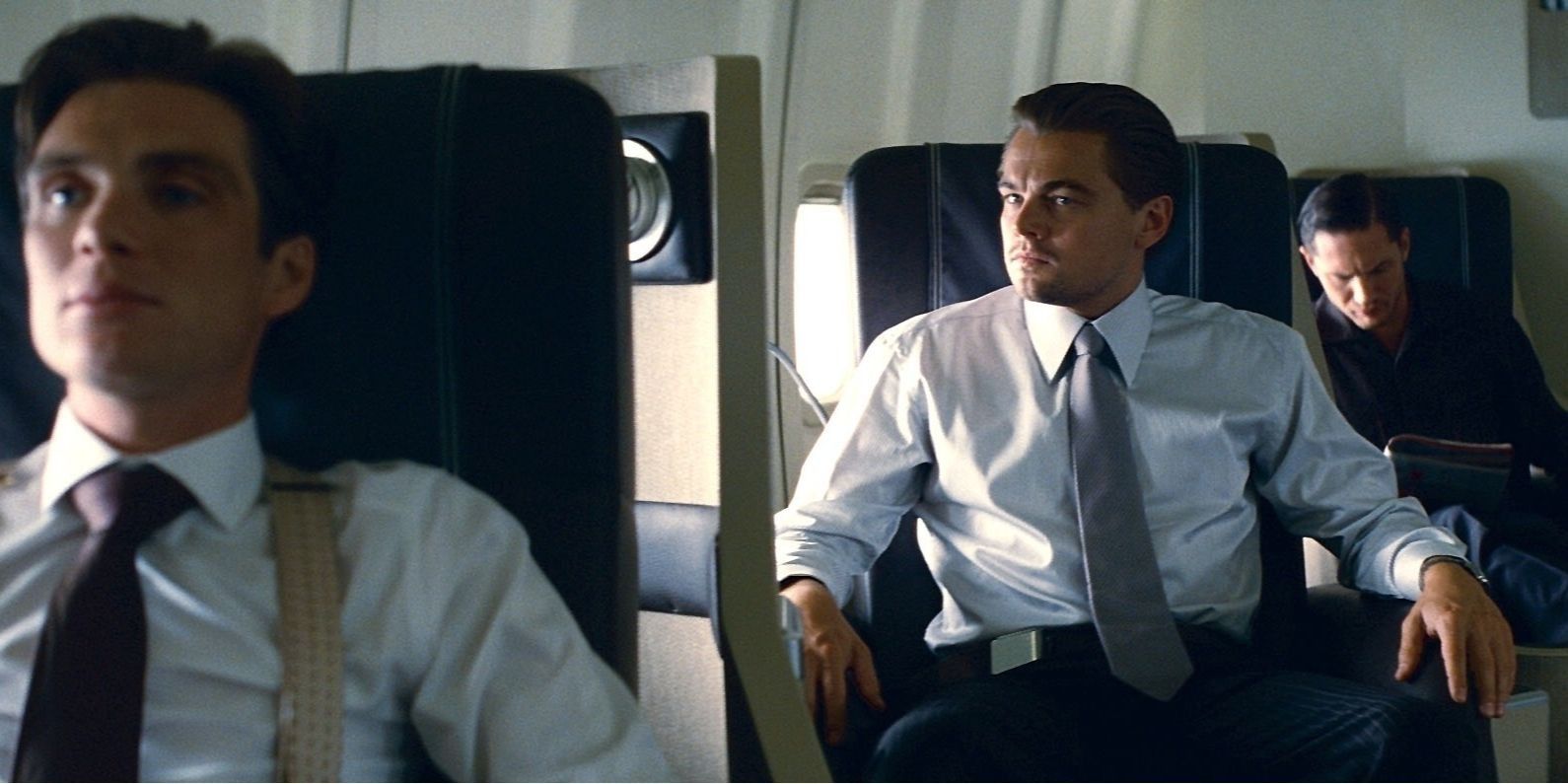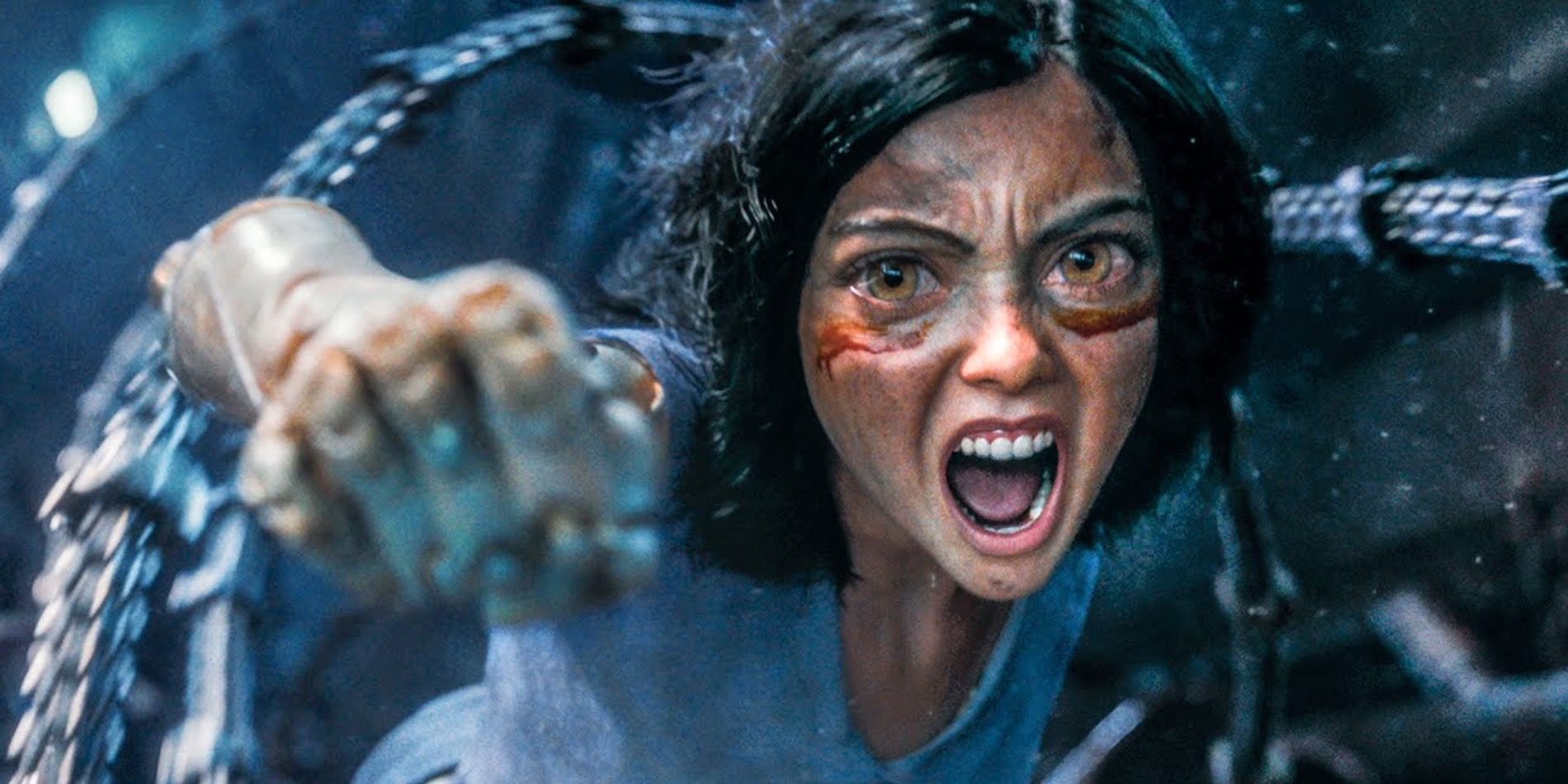David Cronenberg’s eXistenZ is rarely credited with its enduring influence on modern sci-fi, but this strange and gory mind-bender casts a long shadow over the genre’s contemporary state. Released in 1999, eXistenZ is a weird (even by millennial sci-fi's bizarre standards) and twisty movie from body horror icon/The Fly helmer David Cronenberg.
One of a string of out-of-character releases from the director during the mid-nineties to mid-noughties, this propulsive thriller comes before the meditative small-town mystery A History of Violence and after the daring, provocative romantic thriller Crash. Upon release, eXistenZ was met with critical acclaim and audience indifference. A trippy narrative, eXistenZ stars future Hateful Eight standout Jennifer Jason Leigh and Repo Men star Jude Law as a video game designer and her bodyguard, both of whom are forced to take refuge in the eponymous virtual reality game of her invention, prompting a twisty thriller plot that incorporates multiple layers of reality, Y2K panic, and plenty of odd body modification. But as offbeat as this movie may seem, beneath its labyrinthine plot eXistenZ actually provided modern sci-fi with many of its most enduring themes.
Released at almost the same time as the Wachowski Sisters’ more accessible mainstream hit The Matrix, eXistenZ sounded from its premise alone like a return to familiar territory for Dead Ringers director Cronenberg. The movie followed the story of Allegra Geller, the world-famous developer of Game Pods, a next-next generation virtual reality video game format that is surgically inserted into the bodies of its players. After a failed assassination effort is made upon Allegra by a Realist (a cult of fanatics obsessed with maintaining reality and banning virtual reality simulators), she absconds into the virtual reality game she designed, the eXistenZ of the title, to recuperate and see who’s behind this attempt on her life. Only that’s not quite right: In classic twisty sci-fi fashion, there are multiple layers of reality at play here, with the film's pre-eXistenZ reality eventually being revealed to be a game in itself, and the movie’s ambiguous ending asking viewers whether they’re still stuck in another virtual world or the real deal. It’s a mind-bending, twisty thriller which fuses the hallucinogenic world-hopping of Cronenberg’s Burroughs adaptation Naked Lunch with the gruesome body horror of The Fly and the organic-machinery interfaces of Videodrome.
Existenz, The Matrix, & Y2K
Like that earlier bleak James Woods vehicle, eXistenZ casts a cynical eye over technological advancements in entertainment, although this 1999 hit is nowhere near as unambiguously against these technologies. And like the grotesque Burroughs adaptation the movie bounces between different realities without ever offering a comforting answer as to which one of them is the “real world”, but once again this couldn't be called typical Cronenberg, as eXistenZ is also less dark and unsparing than that moving, if gruesome, earlier hit. So why the sudden move into twisty thriller territory and subsequent change in tone for the often cold, clinical Cronenberg? The context that explains eXistenZ's less hopeless and more thrilling view of its futuristic sci-fi milieu is one that informs a lot of the film's competitors, amongst them The Thirteenth Floor, Dark City, and of course, The Matrix.
Most modern sci-fi movies owe a debt to eXistenZ's fellow Y2K-era sci-fi The Matrix, whose reality-warping premise has withstood the test of time and is referenced in everything from Edge of Tomorrow to Tenet. However, like the many pre-y2K techno-sci-fi films listed above eXistenZ also played with the audience’s fears and hopes around the arrival of the new millennium and the rapid development of hitherto-unimaginable technological advancements. Both movies present worlds wherein the advent of the Internet and virtual reality haven’t destroyed humanity but instead altered its self-perception immeasurably. While The Matrix is often credited with contributing to modern sci-fi’s tendency to bounce between different versions and layers of reality, eXistenZ deserves as much credit for this ever-present universe-shifting, as proven by its blatant influence on one later blockbuster.
Inception’s Existenz Influence
Released in 2010, Christopher Nolan’s Inception was lauded as an inventive, ingenious blockbuster hit that fused the sci-fi and thriller genres with great success in its tale of daring "dream heist" corporate criminals. But the movie owes a massive debt to eXistenZ, whether it is an intentional homage or just proof of the enduring influence of Cronenberg’s 1999 movie. Inception sees Leonardo DiCaprio and co invade an executive's dream to implant an idea in his mind, rather than using a Game Pod to enter virtual reality and escape an assassin. But beyond this superficial difference, both movies feature their characters having trouble distinguishing reality from the virtual space thanks to its extraordinary verisimilitude, both end ambiguously without assuring viewers that the cast is safely back in “reality”, both use different hairstyles to signify when characters are slipping between numerous layers of intersecting realities and both feature devices which must be plugged into people's actual bodies to move their consciousness between realities.
While this may be seen to imply that Inception is an uncredited eXistenZ rip-off, the truth is even more interesting. Both movies are radically different enough in tone and execution for this to be less of a direct riff on Cronenberg’s movie and more proof that, despite its relative obscurity, eXistenZ has proven so unavoidably prescient that it not only may have influenced Inception but also the likes of Satoshi Non’s 2006 hit Paprika, which in turn went on to influence Inception. Not only that, but Inception’s own influence on sci-fi in the last decade proves that eXistenZ has both directly and indirectly influenced two decades of sci-fi cinema. Trippy, right?
Existenz’s Body Horror (& Wonder)
Outside of offering a pre-Inception image of intersecting/overlapping layered realities, eXistenZ's other enduring influence on the sci-fi genre can be seen in the movie's less-than-horrified reaction to body modification. Ever since the early eighties when dueling geniuses Tom Savini, Rob Bottin, and Rick Baker all began their impressive careers as makeup effects maestros in the likes of Maniac, The Howling, and An American Werewolf in London, sci-fi and horror cinema had been obsessed with body horror. Everything from Bottin’s exhaustion-inducing work on Carpenter’s masterpiece The Thing to the black-and-white nightmarish technological horror of Tetsuo: The Iron Man had dwelled on the gruesome breakdown of traditional body images, contorting and distorting the human form into all manner of horrific monstrosities. But few of these movies (because they were intended to be body horrors) ever celebrated the potential of body modification and the transhuman, or posthuman, form the way eXistenZ did.
Moving past the initial disgust of movies like Videodrome, which depicted merging the body with technology as a betrayal of nature, eXistenZ began to envision a world wherein technology fusing with the body could usher in an era of new opportunity for humanity. The organic guns and biological implants of eXistenZ are sticky, gooey, and undeniably visceral, but the movie introduces a previously unseen image of human heroes utilizing technology to transform, instead of merely disfiguring and destroying, their bodies. It's enough to make viewers wish Cronenberg's Frankenstein movie wasn't canceled, as eXistenZ's inventive and open-minded approach to sci-fi body modification is an unexpected and empowering divergence from genre norms which has gone on to influence a wide variety of sci-fi media. Everything from the megahit Avatar, to 2014’s underrated Predestination, to Alita: Battle Angel, Elysium, and many more contemporary sci-fi movies have since further explored the non-horror potential of post-human bodies that combine technological advancements with the human form to create a post-technological hero instead of only villains. But for all their innovations, all of these later releases have their origins in the sticky, typically mind-melting world of David Cronenberg's eXistenZ.




